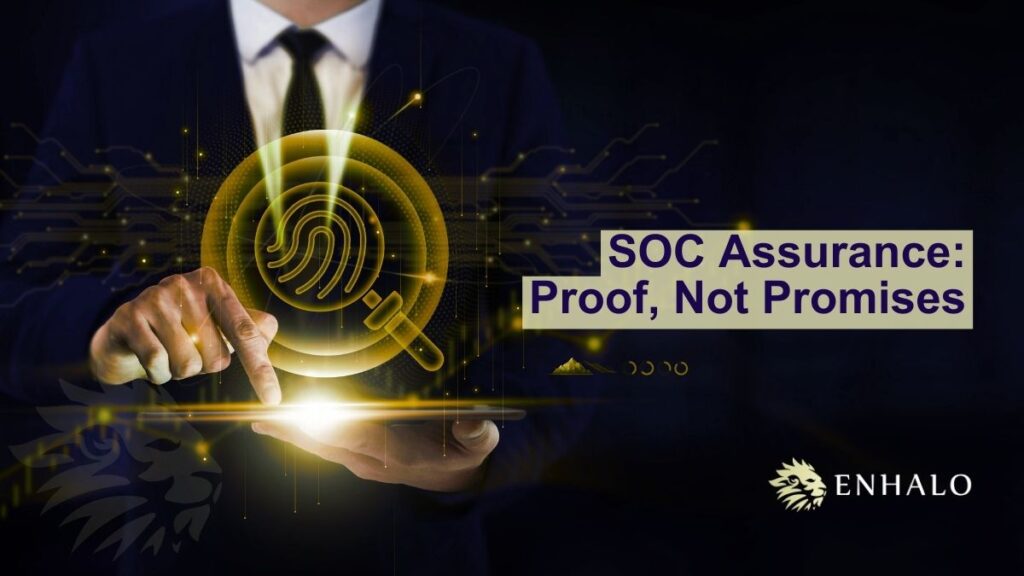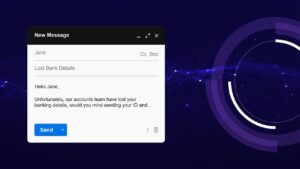The Boardroom Pressure Cooker
Picture the scene. A UK board prepares to sign off its annual report. The updated UK Corporate Governance Code (2024) now requires directors to confirm that their internal controls are effective. This doesn’t only apply to financial systems. It includes cybersecurity.
When the pen hovers over that page, what creates confidence? The knowledge that a SOC exists, or the evidence that it has been tested, validated, and proven?
This is where SOC assurance matters.

From Technical Function to Governance Priority
For years, SOC was the language of CISOs and IT leaders. In 2025, it has become a governance priority. Boards are now accountable for proving that cyber controls work, not simply reporting that they exist.
The Corporate Governance Code demands assurance. That assurance must be independent. It must demonstrate that the SOC can withstand real-world threats and that its processes meet recognised international standards.
Reports such as ISAE 3402 and SOC 2 have become essential because they carry the weight of external validation. They transform claims into evidence.
A 2025 compliance benchmark across the UK and Ireland made the shift clear. Ninety-five percent of firms said the quality of audit reporting was either important or extremely important. What matters is evidence they can present to regulators and auditors without hesitation – depth of testing, clarity of results, and independence of judgement.
What Boards Should Expect from SOC Assurance Providers
When boards consider SOC assurance providers, five qualities matter most.
Independence
Assurance means external validation. Providers must be able to demonstrate objectivity, aligned with recognised standards.
Depth of Controls
Surface checks are insufficient. True assurance requires testing controls against realistic threat scenarios and validating their effectiveness under pressure.
Evidence Trail
Boards need reports that capture methodology, scope, and results in a way that can stand up to auditors and regulators.
Regulatory Alignment
The upcoming Cyber Security and Resilience Bill will introduce daily fines of up to £100,000 for failures in critical systems. Providers must show fluency in UK regulatory requirements and shape assurance accordingly.
Ongoing Validation
Threats evolve constantly. Controls that are tested once and not re-examined quickly lose relevance. Boards should expect continuous validation, not annual certification.
Governance Pressure in the Numbers
The DSIT Cyber Security Breaches Survey 2025 highlights the challenge for directors. Nearly half of UK businesses admit they do not assess the effectiveness of their cyber controls beyond basic IT checks.
Medium-sized firms reported the highest rates of repeat incidents. That repeat rate is the governance signal boards cannot ignore — controls are being designed, but without assurance they are not holding under pressure.
At the same time, medium-sized organisations are reporting the highest rates of repeat incidents. For boards, that repeat rate is the signal of a governance gap. It shows the distance between control design and control validation — the exact gap SOC assurance is intended to close.

The Assurance Mindset
SOC assurance is not about dashboards or technology claims. It is about what directors can show to regulators, auditors, and investors.
The best reports translate technical testing into governance language. They provide clarity of evidence, transparency of process, and the independence that gives confidence in the outcome.
ENHALO’s Perspective
ENHALO’s UK and Europe presence positions us to work directly with boards facing these responsibilities.
- We align SOC assurance to the requirements directors must meet under the Corporate Governance Code.
- We translate technical testing into governance language that supports reporting and compliance.
- We deliver consistent assurance across Europe, Africa, and beyond, providing multinational boards with a unified standard of confidence.
What Boards Should Ask Potential Providers
When considering SOC assurance partners, directors should ask:
- How do you validate SOC controls beyond internal review?
- Can you evidence alignment to ISAE 3402 or SOC 2?
- How frequently do you re-test controls?
- How do you adapt assurance to UK-specific obligations?
- What will your reporting provide that can be presented to auditors with confidence?
These questions cut through branding and reveal the providers capable of delivering assurance that boards can rely on.
Proof That Holds
In 2025, boards are no longer judged on whether a SOC exists. They are judged on whether they can prove it works.
SOC assurance has become a governance issue. It is about confidence and credibility. It is about whether directors can sign off internal controls knowing they will stand up to scrutiny.
The best providers do more than detect threats. They provide proof that boards, auditors, and regulators can trust.
That is what SOC assurance should deliver. That is where ENHALO stands.







